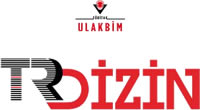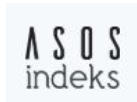Kültürel Tüketici Etnosentrizminin Mükemmelliyetçilik Algısına Etkisinde Marka Değerinin ve E-AAP’nin Aracılık Etkisinin İncelenmesi: TOGG Üzerine Bir Araştırma
DOI:
https://doi.org/10.15659/jancr.v8i3.219Anahtar Kelimeler:
Tüketici kültürel etnosentrizmi- mükemmeliyetçilik- marka değeri- elektronik ağızdan ağıza pazarlama- tüketici davranışlarıÖzet
Bu çalışmada TOGG örneği özelinde kültürel tüketici etnosentrizminin mükemmeliyetçilik algısına etkisinde marka değerinin ve elektronik ağızdan ağıza pazarlamanın aracılık etkisinin belirlenmesi amaçlanmaktadır. Araştırmada kolayda örnekleme yöntemi kullanılmış olup, Isparta’da araç kullanan katılımcılar araştırmaya katılım sağlamıştır. Araştırma modeli araştırmaya konu olan dört değişkenin birlikte ele alınmasıyla oluşturulmuştur. Araştırma modelinde tüketici etnosentrizmi (TE), mükemmeliyetçilik algısı (MA), marka değeri (MD) ve elektronik ağızdan ağıza pazarlama (E-AAP) boyutları ele alınmıştır. Araştırma modelinde yer alan kesikli çizgiler aracılık rolünü anlatırken, kesintisiz olan ok işaretleri ise doğrudan etkiyi anlatmaktadır. Araştırmada elde edilen veri setinin analizinde frekans tablolarının oluşturulması, açımlayıcı faktör analizi ve güvenilirlik analizleri için SPSS paket programı kullanılmıştır. Araştırmada ölçüm modelinin oluşturulması, yapısal eşitlik modelinin test edilmesi ve doğrudan/dolaylı etkilerin ölçülmesinde Smart-PLS paket programından yararlanılmıştır. Araştırmada tüketici etnosentrizminin mükemmeliyetçilik algısını, elektronik ağızdan ağıza pazarlamayı ve marka değerini pozitif yönde etkilediği görülmüştür. Araştırmada ayrıca tüketici etnosentrizminin mükemmeliyetçilik algısına etkisinde marka değerinin ve elektronik ağızdan ağıza pazarlamanın aracılık rolünün pozitif yönde gerçekleştiği belirlenmiştir.
Referanslar
Aaker, D. A. (1991). Managing brand equity: capitalizing on the value of a brand name. Free Press.
Akbıyık, F. (2021). A Research on determining the relationship between consumers' purchasing styles and their religious orientations. Pazarlama ve Pazarlama Araştırmaları Dergisi, 14, 31-59.https://doi.org/10.15659/ppad.14.2.252.
Al Dashgle, Z. M. S. (2022). The impact. of perceived. equity, quality and value on online repurchase intention an empirical study of alibaba online shopping. Store. Yayınlanmamış Yüksek Lisans Tezi. İstanbul Gelişim Üniversitesi Lisansüstü Çalışmalar Enstitüsü.
Aslım, T. (2023). Tüketici etnosentrizmi ve marka bağlılığı arasındaki ilişkide materyalizmin düzenleyicilik rolünün incelenmesi. Yayınlanmamış Yüksek Lisans Tezi. KTO Karatay Üniversitesi Lisansüstü Eğitim Enstitüsü.
Baber, R., Sankpal, S., Baber, P., & Gulati, C. (2024). Consumer ethnocentrism: What we learned and what we need to know? – A systematic literature review. Cogent Business & Management, 11(1). https://doi.org/10.1080/23311975.2024.2321800.
Balabanis, G., Diamantopoulos, A. (2004). Domestic country bias, country-of-origin effects, and consumer ethnocentrism: a multidimensional unfolding approach. J. of the Acad. Mark. Sci. 32, 80–95. https://doi.org/10.1177/0092070303257644.
Balabanis, G., Diamantopoulos, A., Mueller, R. D., & Melewar, T. C. (2001). The impact of nationalism, patriotism and internationalism on consumer ethnocentric tendencies. Journal of International Business Studies, 32(1), 157–175. https://doi.org/ 10.1057/palgrave.jibs.8490943.
Berksan, Ö. (2019). Tüketici etnosentrizmin marka sadakatine etkisi: hazır giyim ürünleri üzerine bir araştırma. Yayınlanmamış Yüksek Lisans Tezi. Gazi Üniversitesi Eğitim Bilimleri Enstitüsü.
Çalışkan, B. (2022). Tüketici etnosentrizmi ve kozmopolitliğin marka bağlılığı üzerindeki etkisi: gsm operatörlerine ilişkin bir araştırma. Yayınlanmamış Yüksek Lisans Tezi. Sakarya Üniversitesi İşletme Enstitüsü.
Cengiz, G. (2011). Tüketici etnosentrizmi ve ülke imajı üzerine kültürler arası bir çalışma: Türkiye ve Yunanistan örneği. Yayınlanmamış Yüksek Lisans Tezi. Çukurova Üniversitesi Sosyal Bilimler Enstitüsü.
Çetin, C., Tiltay, M. A., & Özkara, B. Y. (2020). Sosyal medya kullanım yoğunluğu ile sosyal medyada ünlü kullanımının lüks tüketim eğilimine etkisinde elektronik ağızdan ağıza pazarlamanın (ewom) rolüne yönelik bir araştırma. Pazarlama ve Pazarlama Araştırmaları Dergisi, Sayı: 3, ss. 590-619.
Ceylan, E. (2017). The role of consumer ethnocentrism and country of origin effect on consumer purchase decision. Unpublished Master Thesis. Yeditepe University Institute of Social Sciences.
Ceylan, H. H., (2013). Tüketici Tipleri envanterinin Türk kültürüne uyarlanması, Ç. Ü. Sosyal Bilimler Enstitüsü Dergisi, 22(2), 41-58.
Charo, N., Sharma, P., Shaikh, S., Haseeb, A., & Sufya, M. Z. (2015). Determining the impact of ewom on brand image and purchase intention through adoption of online opinions. International Journal of Humanities and Management Sciences, 3(1), 41-46.
Cheung, C. M. K., & Thadani, D. R. (2012). The impact of electronic word-of-mouth communication: a literature analysis and integrative model. Decision Support Systems, 54(1), 461-470. https://doi.org/10.1016/j.dss.2012.06.008.
Chu, S. C., & Kim, Y. (2011). Determinants of consumer engagement in electronic word-of-mouth (ewom) in social networking sites. International Journal of Advertising, 30(1), 47-75. https://doi.org/10.2501/IJA-30-1-047-075.
Cleveland, M., Laroche, M., & Papadopoulos, N. (2009). Cosmopolitanism, consumer ethnocentrism, and materialism: an eight-country study of antecedents and outcomes. Journal of International Marketing, 17(1), 116–146. https://doi.org/ 10.1509/jimk.17.1.116.
Cömert, E. (2019). Marka kişiliği ve tüketici etnosentrizmi arasındaki ilişki: hızlı tüketim sektörü üzerine bir araştırma. Yayınlanmamış Yüksek Lisans Tezi. Marmara Üniversitesi Sosyal Bilimler Enstitüsü.
Çoşkun, T. (2019). Hedonik ve faydacı tüketim davranışları ile tüketici etnosentrizmi arasındaki ilişki: kuşaklara yönelik bir araştırma. Yayınlanmamış Doktora Tezi. Muğla Sıtkı Koçman Üniversitesi Sosyal Bilimler Enstitüsü.
de Ruyter, K., Birgelen, M., & Wetzels, M. (1998). Consumer ethnocentrism in international services marketing. International Business Review, 7(2), 185-202.
Dellarocas, C. (2003). The digitization of word of mouth: promise and challenges of online feedback mechanisms. Management Science, 49(10), 1407-1424. https://doi.org/10.1287/mnsc.49.10.1407.17308.
Elshakmak, G. K. A. Y. (2020). Tüketici etnosentrizm düzeylerinin satın alma tarzları üzerine etkisi: libya örneği. Yayınlanmamış Yüksek Lisans Tezi. Kastamonu Üniversitesi Sosyal Bilimler Enstitüsü.
Flett, G. L., & Hewitt, P. L. (2002). Perfectionism: theory, research, and treatment. American Psychological Association.
Fornell,C.& Larcker, D. F. (1981). Structural equation models with unobservable variables and measurement error: algebra and statistics. Journal of Marketing Research, 382-388.
Gil, A. A. (2018). Consumer ethnocentrism: comparing findings from Turkey and Colombia. Unublished Master Thesis. Çukurova University Social Sciences Institute.
Goldenberg, J., Libai, B., ve Muller, E. (2001). Talk of the network,s. a complex systems look at the underlying process of word-of-mouth. Marketing Letters, 12(3), 211-223. https://doi.org/10.1023/A:1011122126881.
Gök, K. & Aydoğan, E. (2020). Mükemmeliyetçilik Algısının kariyer planlama sürecindeki etkisinin araştırılması: çorlu coca cola içecek fabrikası örneği. Anadolu Kültürel Araştırmalar Dergisi, 4(2), 116-126.
Güngör, Y. (2016). Marka kişiliği algısı ve menşe ülke etkenlerinin tüketici etnosentrizmi üzerindeki etkisi: starbucks & kahve dünyası örneği. Yayınlanmamış Yüksek Lisans Tezi. Çağ Üniversitesi Sosyal Bilimler Enstitüsü.
Güven Deprem, Y. (2015). Word of mouth effect on purchase decısıon involvement and brand loyalty: an applıcatıon in mobıle phone sector. Unpublished Master Thesis. Bahcesehir University Social Sciences Institute.
Hair, J.F., Tomas, G., Hult, M., Ringle, C.M., & Sarstedt, M. (2014), A primer on partial least square structural equations modeling (PLS-SEM), Los Angeles: Sage.
Heljic, S. (2015). Milliyet merkezcilik ve düşmanlığın satın alma niyeti üzerindeki etkisinin kültürel benzerlik çerçevesinde incelenmesi: bosna hersek örneği. Yayınlanmamış Yüksek Lisans Tezi. Hacettepe Üniversitesi Sosyal Bilimler Enstitüsü.
Hennig-Thurau, T., Gwinner, K. P., Walsh, G., & Gremler, D. D. (2004). Electronic word-of-mouth via consumer-opinion platforms: What motivates consumers to articulate themselves on the internet? Journal of Interactive Marketing, 18(1), 38-52.
Henseler, J., Ringle, C.M. ve Sarstedt, M. (2015). A new criterion for assessing discriminant validity in variencebased structural equation modelling. Journal of the Academy of Marketing Science, 43, 115-135.
İğde, Ç. S. (2023). Tüketicilerin TOGG marka araçları satın alma niyetlerinin incelenmesi: bireysel yenilikçilik, çevrecilik ve tüketici etnosentrizmi perspektiflerinden bir araştırma. Yayınlanmamış Yüksek Lisans Tezi. Kahramanmaraş Sütçü İmam Üniversitesi Sosyal Bilimler Enstitüsü.
Kapıkıran, Ş. (2010). Tüketici etnosentrizmi, marka imajı ve ülke menşei etkisinin, tüketicilerin yerli ve yabancı ürünlere yönelik tutumlarına etkilerinin değerlendirilmesi: mersin kentinde yapılan bir araştırma. Yayınlanmamış Yüksek Lisans Tezi. Mersin Üniversitesi Sosyal Bilimler Enstitüsü.
Kaplan, U. (2020). Tüketici etnosentrizmi ve üretim ülkesi etkisi: ankara ili üniversitelerinden bir örnek. Yayınlanmamış Doktora Tezi. Gazi Üniversitesi Sosyal Bilimler Enstitüsü.
Karaosmanoğu, E., Acar, R. & Uray, N., (2016). Websiteleri firmalara ne kazandırabilir? web sitesi kalitesi, tüketici-odaklı marka değeri ve satın alma eğilimi arasındaki ilişki. Anadolu Üniversitesi Sosyal Bilimler Dergisi, 16(1), 159-174.
Koçyiğit, İ. (2021). Tüketici etnosentrizmi ve tüketici zenosentrizminin yabancı ürün satın alma niyeti üzerindeki rolü. Yayınlanmamış Yüksek Lisans Tezi. Yalova Üniversitesi Lisansüstü Eğitim Enstitüsü.
Lin, L.-Y., & Chen, C.-S. (2006). The influence of the country-of-origin image, product knowledge and product involvement on consumer purchase decisions: an empirical study of insurance and catering services in Taiwan. Journal of Consumer Marketing, 23(5), 248-265.
Lysonski, S., Durvasula, S., Zotos, Y., (1996). Consumer decision making styles: a multi country investigation. European Journal of Marketing, 30(12), 10-21.
Ma, Q., Abdeljelil, H.M., & Hu, L. (2019) The Influence of the consumer ethnocentrism and cultural familiarity on brand preference: evidence of event-related potential (ERP). Front. Hum. Neurosci. 13:220. doi: 10.3389/fnhum.2019.00220.
Marinkovic, V., Lazarevic, J. D., & Maric, D. (2023). Consumer Ethnocentrism under the circumstances of the COVID-19 virus pandemic. Strategic Management, 28(1), 33-45.
Moon, H., & Jain, S. C. (2002). Consumer processing of foreign advertisements: roles of country-of-origin perceptions, consumer ethnocentrism, and country attitude. International Business Review, 11(2), 117-138.
Muñoz-Penagos, C. A., & Velandia-Morales, A. (2014). Etnocentrismo del mercado colombiano y brasilero y su relación con las actitudes e intención de compra hacia productos extranjeros y domésticos. Suma Psicológica, 21(2), 99-106.
Netemeyer, Richard G., Srinivas Durvasula, & Donald R. Lichtenstein. (1991) A cross-national assessment of the reliability and validity of the CETSCALE. Journal of Marketing Research, 320-327.
Özcan, R. N. (2022). Tüketici etnosentrizmi ve menşe ülke algısının algılanan marka değeri ve marka tercihi üzerindeki etkisi. Yayınlanmamış Yüksek Lisans Tezi. Kocaeli Üniversitesi Sosyal Bilimler Enstitüsü.
Papadopoulos, N., & Heslop, L. A. (2003). Country equity and product-country images: state-of-the-art in research and implication. Handbook of Research in International Marketing, 402-433.
Parameswaran, M. & Whinston, A. B. (2007) Research issues in social computing. Journal of the Association for Information Systems, 8(6), DOI: 10.17705/1jais.00132.
Park, C., & Lee, T. M. (2009). Information Direction, website reputation and e-wom effect: a moderating role of product type. Journal of Business Research, 62(1),61-67. https://doi.org/10.1016/j.jbusres.2007.11.017.
Prentice, C., Wang, X., & Loureiro, S. M. C. (2019). The influence of identity-driven customer engagement on purchase intention. Journal of Retailing and Consumer Services, 47, 339-347.
Rasauli, R. (2016). Tüketici temelli marka değeri ile perakendeci temelli marka değerinin karşılaştırılması ve perakendeci temelli marka değerinin marka performansına etkisi üzerine bir araştırma (Ağrı-Iğdır-Van İllerinde Süt Ürünleri Örneği). Yayınlanmamış Doktora Tezi. Atatürk Üniversitesi Sosyal Bilimler Enstitüsü.
Sezginer, A. (2023). Reklamlarda ulusal kimlik unsurlarının kullanımının tüketici tutumları ve satın alma niyeti üzerindeki etkisinde tüketici etnosentrizminin rolü. Yayınlanmamış Doktora Tezi. Kocaeli Üniversitesi Sosyal Bilimler Enstitüsü.
Shimp, T. A., & Sharma, S. (1987). Consumer ethnocentrism: Construction and validation of the CETSCALE. Journal of Marketing Research, 24(3), 280-289.
Siamagka, N.-T., & Balabanis, G. (2015). Revisiting consumer ethnocentrism: review, reconceptualization, and empirical testing. Journal of International Marketing, 23(3), 66–86. https://doi.org/10.1509/jim.14.0085.
Siu, N. Y. M., Wang, C. C. L., Chang, L. M. K., Hui, A. S. Y., (2001). Adapting consumer style inventory to chinese consumers: a confirmatory factor analysis approach. Journal of International Consumer Marketing, 13(2), 29-48.
Somtaş Lekesizcan, L. (2023). Sosyal medyada elektronik ağızdan ağıza pazarlamanın sürdürülebilir tüketime etkisi: planlanmış davranış teorisi çerçevesinde incelenmesi. Yayınlanmamış Doktora Tezi. Erciyes Üniversitesi Sosyal Bilimler Enstitüsü.
Sproles, J. &Kendall, E. (1986). A methodology for profiling consumer’s decision-maling styles. The Journal of Consumer Affairs, 20, (2), 267-279.
Sulaimanova, A. (2019). Marka kişiliği, tüketici etnosentrizmi ve menşe ülkenin satın alma niyetine etkisi: Türkiye ve Kırgızistan üzerine bir araştırma. Yayınlanmamış Yüksek Lisans Tezi. İstanbul Üniversitesi Sosyal Bilimler Enstitüsü.
Sun, Y., Gonzalez-Yimenez, H., Wang, S. (2011). Examining the relationships between e-wom, consumer ethnocentrism and brand equity. Journal of Business Research, 130, 564-573.
Sürer. S. (2017). Tüketici etnosentrizmi ve menşe ülke etkisinin tüketicilerin yerli marka otomobil satın alma niyeti üzerine etkisi. Yayınlanmamış Yüksek Lisans Tezi. İstanbul Gelişim Üniversitesi Sosyal Bilimler Enstitüsü.
Tuzcuoğlu, A. (2012). Tüketici satın alma niyetinde tüketici etnosentrizmi ve menşe ülke etkisinin önemi: otomobil sektörü üzerine Türkiye ve Rusya’da karşılaştırmalı bir araştırma. Yüksek Lisans Tezi. İstanbul Üniversitesi Sosyal Bilimler Enstitüsü.
Ünal, S., Erciş, A., (2006). Tüketicilerin Kişisel Değerlerinin Satın Alma Tarzları Üzerindeki Etkisi. Ticaret ve Turizm Eğitim Fakültesi Dergisi, 1, 23-48.
Urmak, T. T., & Dayanç-Kıyat, G. B. (2021). Marka imajının elektronik ağızdan ağıza pazarlama (EAAP) üzerindeki etkisi: Notebook kullanıcıları üzerine bir araştırma. İstanbul Ticaret Üniversitesi Sosyal Bilimler Dergisi, 20(40), 505-524. doi: 10.46928/iticusbe.824941.
Varan, N. (2020). The Effect of Brand Equity on Intrinsic and Extrinsic Motivations Of Consumers For Luxury Consumption Tendency. Unpublished Master Thesis. Çankaya Üniversitesi Lisansüstü Sosyal Bilimler Enstitüsü.
Vida, I. and Reardon, J. (2008). Domestic consumption: rational, affective or normative choice?. Journal of Consumer Marketing, 25(1), 34-44. https://doi.org/10.1108/07363760810845390.
Yavuzer, I. (2010). The impact of consumer ethnocentrism on generation y’s purchase intentions and their consumer decision-making styles: an empirical study on Turkish university students. Unpublished Master Thesis. Yeditepe University Institute of Social Sciences.
Yılmaz, V., & Doğan, A. G. M. (2016). Planlanmış Davranış teorisi kullanılarak önerilen bir yapısal eşitlik modeli ile geri dönüşüm davranışlarının araştırılması. Anadolu Üniversitesi Sosyal Bilimler Dergisi, 16(Özel Sayı), 191-206. https://doi.org/10.18037/ausbd.417457.
Yousıf, M. N. B. (2019). Tüketici etnosentrizmi ve menşe ülke etkisinin algılanan marka değeri ve satın alma niyeti üzerindeki etkisi: Türkiye ve sudan karşılaştırması. Yayınlanmamış Yüksek Lisans Tezi. Kocaeli Üniversitesi Sosyal Bilimler Enstitüsü
İndir
Yayınlanmış
Nasıl Atıf Yapılır
Sayı
Bölüm
Lisans
Telif Hakkı (c) 2024 Anadolu Kültürel Araştırmalar Dergisi (ANKAD)

Bu çalışma Creative Commons Attribution-NonCommercial 4.0 International License ile lisanslanmıştır.













